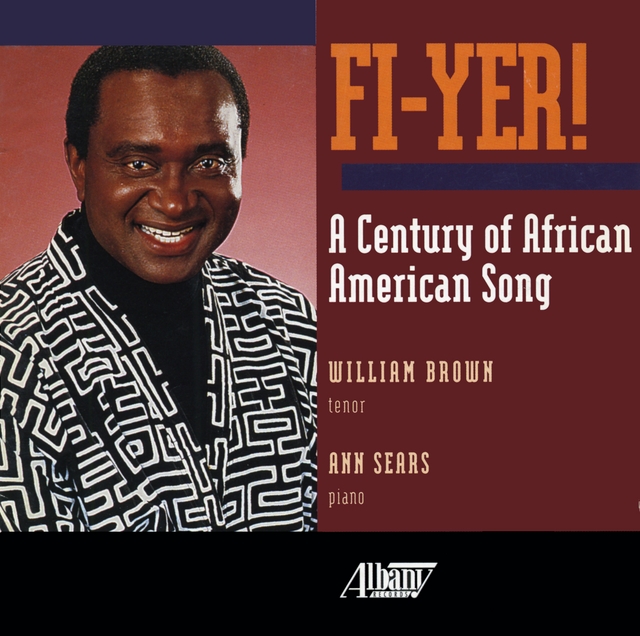

|
William Brown (March 29, 1938, Jackson, Mississippi – October 20, 2004, Jacksonville, Florida) was an American operatic tenor. Brown earned a Bachelor of Music degree from Jackson State University in 1960 and a Masters of Music degree from the Jacobs School of Music at Indiana University in 1962. He later earned a doctorate of music from the Peabody Institute in 1971. From 1962 to 1966, he was a soloist with the United States Navy Band and Choir, with whom he performed for Presidents John F. Kennedy and Lyndon B. Johnson. In 1967, he made his professional opera debut as Spalanzani in The Tales of Hoffmann with the Baltimore Opera Company. That same year, replacing an ailing Plácido Domingo, he made his New York City debut as Kalaf in Ferruccio Busoni's Turandot with The Little Orchestra Society at Avery Fisher Hall. He also starred as the Angel in the world premiere of John La Montaine's pageant opera The Sheparde's Playe, which was recorded for television and broadcast nationally in the United States on ABC. In 1968, he created the role of Feste in the world premiere of David Amram's Twelfth Night at the Lake George Opera, and he made his debut at the New York City Opera as Lieutenant Jean l'Aiglon in the world premiere of Hugo Weisgall's Nine Rivers from Jordan. In 1970, Brown sang the role of Don Ottavio in Wolfgang Amadeus Mozart's
Don Giovanni at the Connecticut Opera. In 1971, he portrayed
the role of Lucano in Claudio Monteverdi's L'incoronazione di Poppea
with the Opera Orchestra of New York under conductor Eve Queler. He returned
to the Baltimore Opera in 1972 to perform the role of Belmonte in Mozart's
Die Entführung aus dem Serail. In 1977, he sang the role
of Nate in the New York premiere of William Grant Still's Highway
1 U.S.A. for the inaugural production of Opera Ebony. That same year,
he made his debut with the New York Philharmonic, singing in a concert
of works written entirely by African-American composers. In 1981, he performed
the role of Thompson St. Chavez in Virgil Thomson's Four
Saints in Three Acts at Carnegie Hall, a role which he recorded
with Nonesuch Records in 1982. In 1985, he starred in the world premiere
of Dorothy Rudd Moore's
opera, Frederick Douglass, at Aaron Davis Hall. In 1991,
he was the recipient of the North Carolina Award.
From 1972 until his death 32 years later, Brown was a professor of
voice at the University of North Florida. He had previously taught at Florida
Presbyterian College from 1970 to 1972. Brown died in 2004 at the age of
66 in Jacksonville, Florida. == Names which are links in this box, and below,
refer to my interviews elsewhere on my website. BD |
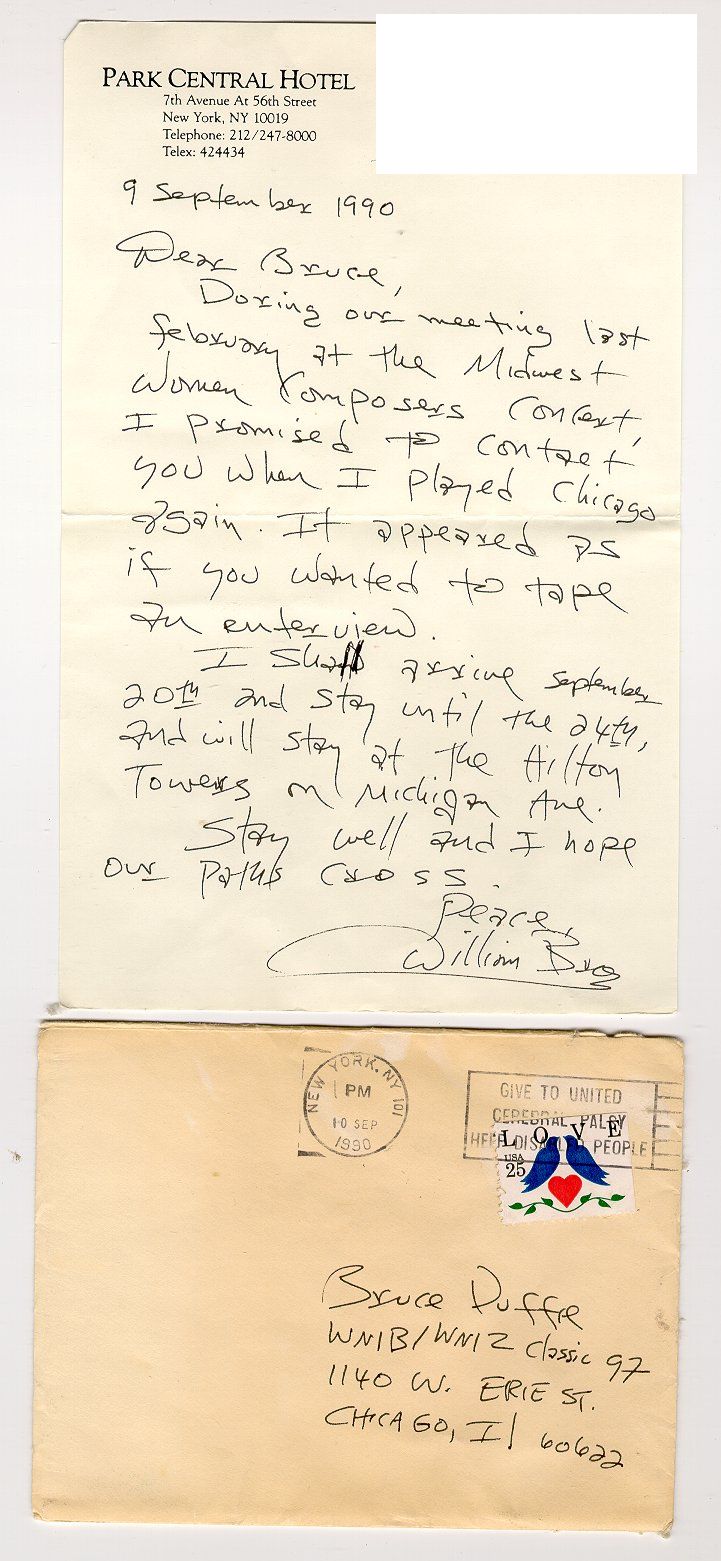
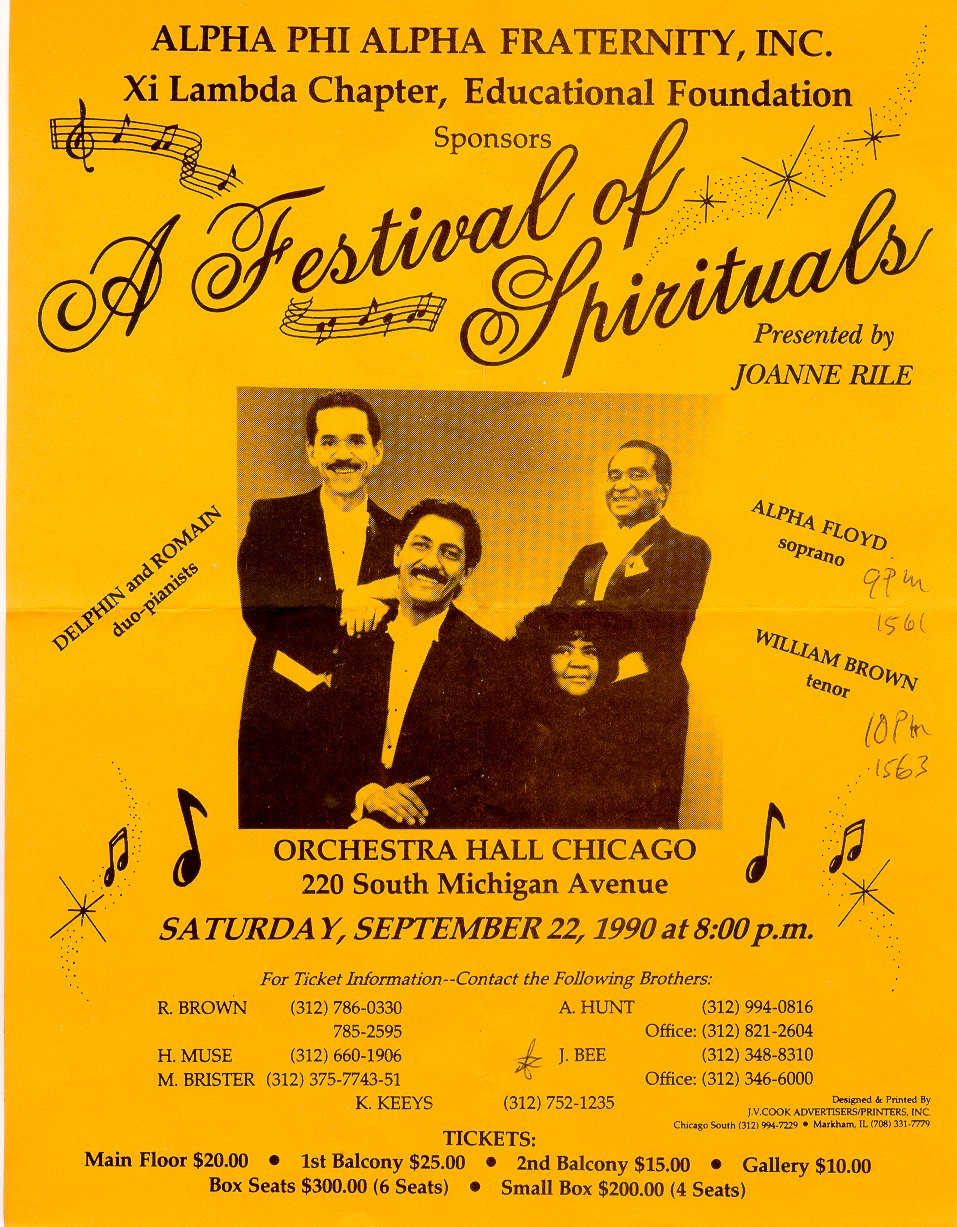
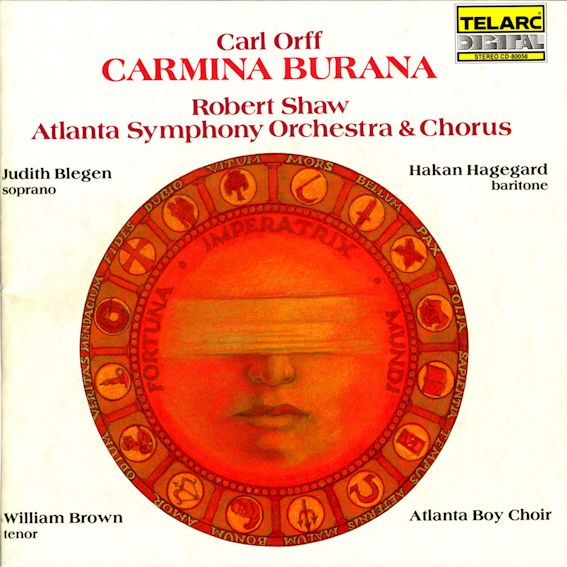
| Through This Vale of Tears:
In Memoriam Martin Luther King, Jr. is a song cycle for high voice,
two violins, viola, cello, and piano. The music is by David
N. Baker, and the text is from various poets and sources. Commissioned
and recorded twice by tenor William Brown, the work is a kind of social
commentary on the death of Dr. King. As described by the Atlanta
Journal Constitution, “Mr. Baker's piece set a variety
of texts in a cornucopia of styles, including scat, spiritual, and chorale.
Miraculously, this diversity cohered, producing a multi-dimensional
work filled with grief, humor and hope.” [Brown's recording of this Baker work is on
a CD with a piece by Olly Wilson, which
is shown in a box below when we discuss the Wilson item.]
* * *
* *
In 1990 “Runagate, Runagate,” sung by the tenor William Brown, was featured in a program by the Black Music Repertory Ensemble, a Chicago group, at Alice Tully Hall in New York. The work is a setting of Robert E. Hayden's poem about a fugitive slave. Reviewing the performance in The New York Times, Allan Kozinn wrote, “Mr. Logan’s music — a volatile mixture of angularity, harmonic haziness and expressive dissonance tempered with openly tonal sections — adds a palpable dramatic dimension to the narrative.” |
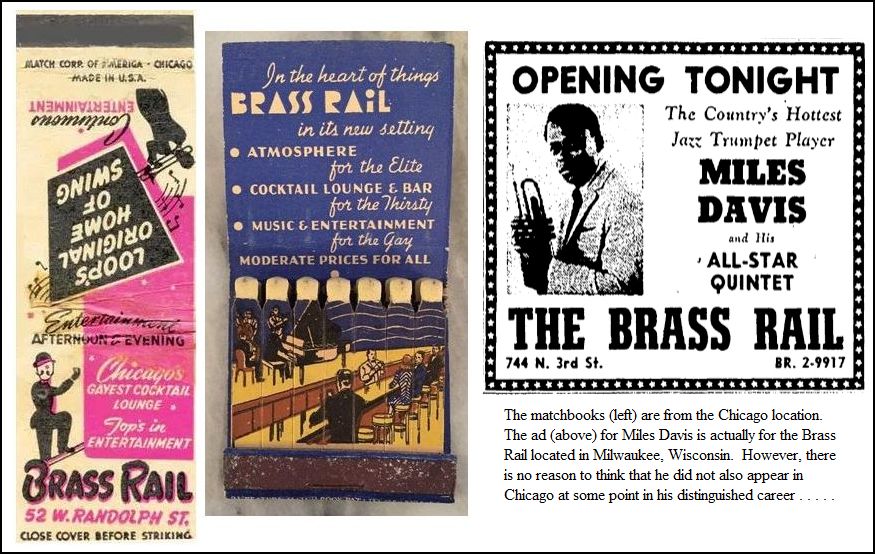
| Turandot (BV 273) is a 1917 opera with spoken dialogue and
in two acts by Ferruccio Busoni. The composer prepared his own libretto,
in German, based on the play by Count Carlo Gozzi. The music for Busoni's
opera is based on the incidental music, and the associated Turandot
Suite (BV 248), which Busoni had written in 1905 for a production
of Gozzi's play. The opera is often performed as part of a double bill with
Busoni's earlier one-act opera Arlecchino. Busoni greatly simplified Gozzi's 5-act play into an opera of two acts of two scenes each. However, the basic plot is the same as the much more famous Puccini opera of the same name. Turandot, daughter of the Emperor, challenges all suitors for her hand with three riddles. She will marry the one who answers correctly, but those who fail are executed. Kalaf, an exiled prince in disguise, takes up the challenge. |
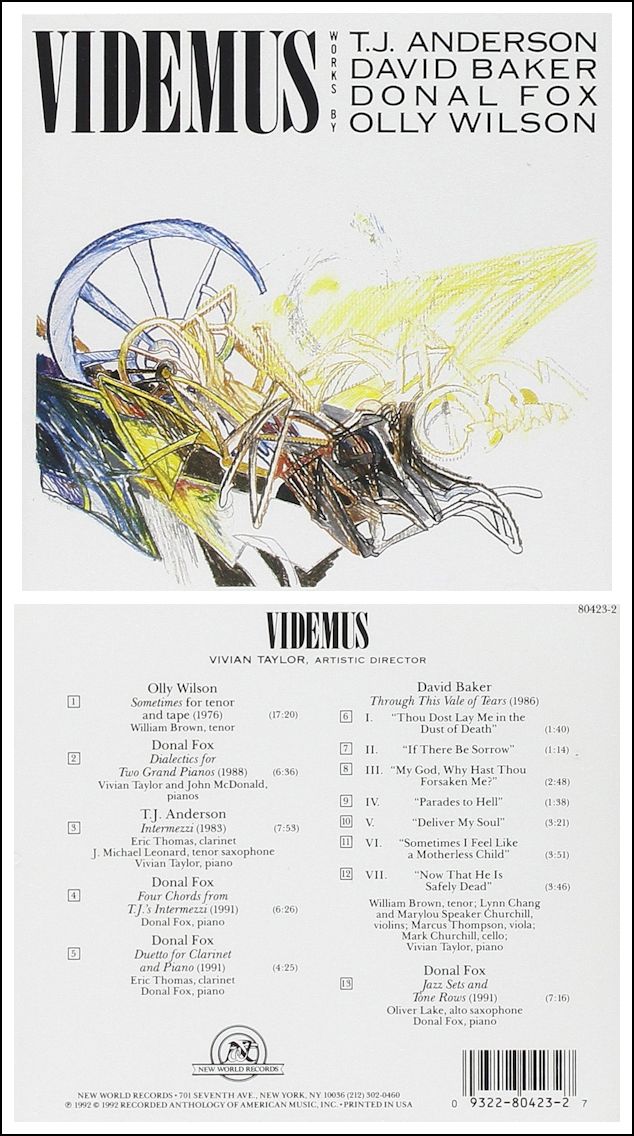 BD: So, you pulled it off?
BD: So, you pulled it off?|
The tenor William Brown made his New York recital debut Wednesday at Carnegie Hall, avoiding repertory commonplaces in a program that offered such esoterica as five songs by Carl Maria von Weber for voice and guitar, two Zulu songs accompanied by percussion, two ''catch songs,'' David Baker's piquant ''The Black Experience'' and Priaulx Ranier's haunting ''Cycle for Declamation.'' The performances did not always succeed on a technical level - Mr. Brown's range was a bit limited for some of the music, and his control in softer dynamics was shaky - but there were some fine moments when the drama of a setting brought the soloist to an expressive boil. Mr. Brown's account of his own a cappella arrangement of the spiritual ''Sometimes I Feel Like a Motherless Child'' was a particularly memorable example. He also responded to the fiendish demands of ''Nunc, lento sonitu dicunt,'' the final setting in Miss Rainier's a cappella cycle, with a vivid performance that was further distinguished by almost uncannily clear diction. The Weber songs, accompanied by the guitarist Peter Segal, were intimate works that emerged slightly overcooked in the tenor's accounts; three songs by Rimsky-Korsakov were more effective, though Mr. Brown's Russian was not much better than his German. In airs from two of Handel's oratorios, he sang expressively and with a good grasp of style. The pianist Wayne Sanders accompanied sympathetically, and did yeoman service as a percussionist in the Zulu songs. [Photo at right from another source] |
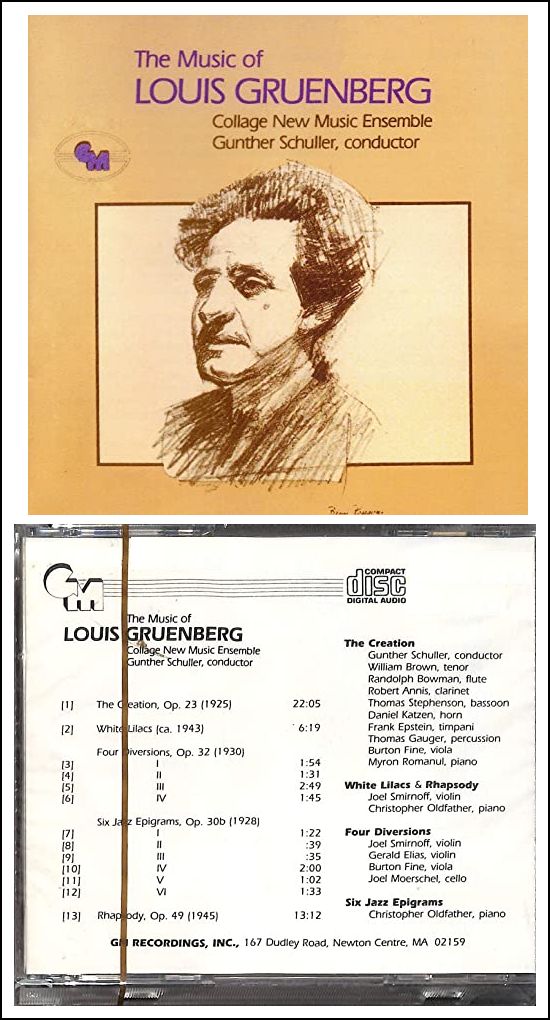 Brown: Yes, and if I communicate
with you, if I bare my soul, if I’m totally honest and have done my
work, I become the conduit of that wonderful spirit that was given to
the composers. Then I relate that all out there and form a spirituality.
Now that means sometimes I have to make some ugly sounds, but I’m not
afraid to take the voice to places that would be totally unacceptable
in certain quarters. I’m bound to find my spot, to which I’m slowly
getting, and I am about to define my uniqueness. Perhaps my day
will come where I can have the forum to put forth this kind of approach.
One needs to have the forum in order to be effective. People in
the business know who I am, but I am still finding that public, where I
will have an opportunity to say things, like we’re doing now. This
kind of sharing may have some effect on some youngsters, and that’s one
of the reasons why I go into it hot and heavy.
Brown: Yes, and if I communicate
with you, if I bare my soul, if I’m totally honest and have done my
work, I become the conduit of that wonderful spirit that was given to
the composers. Then I relate that all out there and form a spirituality.
Now that means sometimes I have to make some ugly sounds, but I’m not
afraid to take the voice to places that would be totally unacceptable
in certain quarters. I’m bound to find my spot, to which I’m slowly
getting, and I am about to define my uniqueness. Perhaps my day
will come where I can have the forum to put forth this kind of approach.
One needs to have the forum in order to be effective. People in
the business know who I am, but I am still finding that public, where I
will have an opportunity to say things, like we’re doing now. This
kind of sharing may have some effect on some youngsters, and that’s one
of the reasons why I go into it hot and heavy.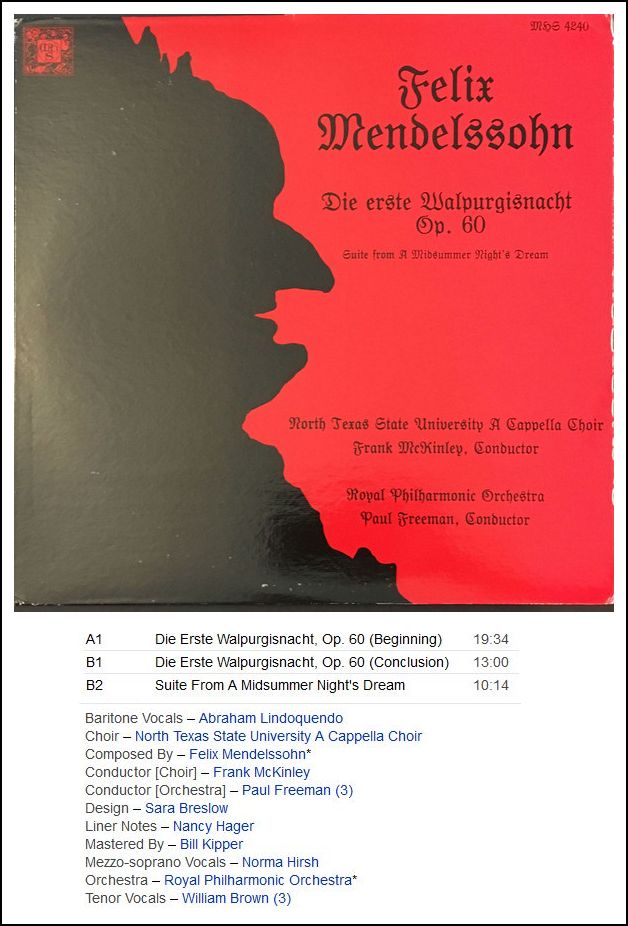 Brown: I guess so. But on the other hand, there
were some things that I did that sounded to me better than I had originally
thought. Either that, or I had better equipment, which could
be the case. I have better equipment today than when I heard them
originally. But the public knows what they’re doing, especially
in the opera situation. Unless you are over the hill and they’ve
loved you all their lives, by and large when you’re somewhat of an unknown,
they’re probably not going to rise to the occasion unless you go way beyond
the norm.
Brown: I guess so. But on the other hand, there
were some things that I did that sounded to me better than I had originally
thought. Either that, or I had better equipment, which could
be the case. I have better equipment today than when I heard them
originally. But the public knows what they’re doing, especially
in the opera situation. Unless you are over the hill and they’ve
loved you all their lives, by and large when you’re somewhat of an unknown,
they’re probably not going to rise to the occasion unless you go way beyond
the norm.© 1990 Bruce Duffie
This conversation was recorded in Chicago on September 21, 1990. Portions were broadcast on WNIB in 1993 and 1998; and on WNUR in 2003 and 2015. This transcription was made in 2020, and posted on this website at that time. My thanks to British soprano Una Barry for her help in preparing this website presentation.
To see a full list (with links) of interviews which have been transcribed and posted on this website, click here. To read my thoughts on editing these interviews for print, as well as a few other interesting observations, click here.
Award - winning broadcaster Bruce Duffie was with WNIB, Classical 97 in Chicago from 1975 until its final moment as a classical station in February of 2001. His interviews have also appeared in various magazines and journals since 1980, and he now continues his broadcast series on WNUR-FM, as well as on Contemporary Classical Internet Radio.
You are invited to visit his website for more information about his work, including selected transcripts of other interviews, plus a full list of his guests. He would also like to call your attention to the photos and information about his grandfather, who was a pioneer in the automotive field more than a century ago. You may also send him E-Mail with comments, questions and suggestions.